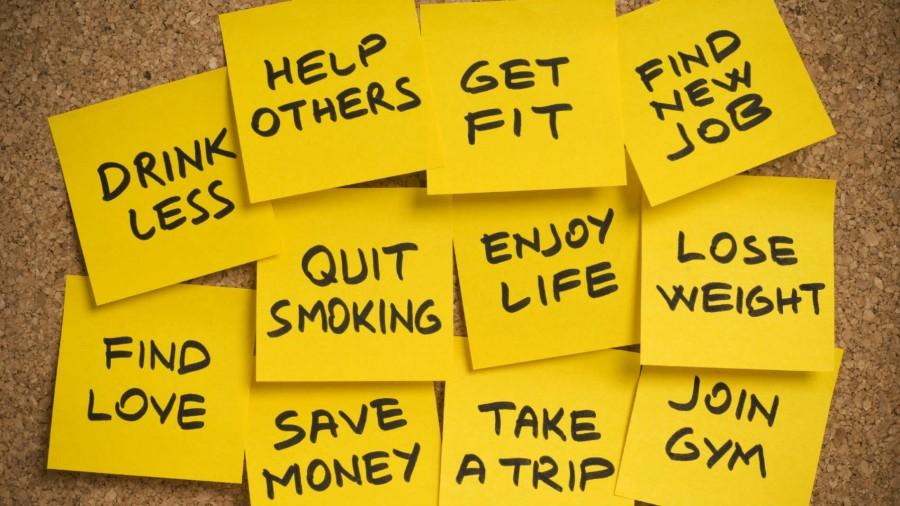Cheers To Giving Up!
January 10, 2016
The beginning of 2016 offers the opportunity to start anew. Along with new beginnings comes goals. Many of these goals consist of getting organized, spending less, falling in love, quitting smoking, and living life to its absolute fullest. Some people even feel as if it motivates people to do better during the year.
“Some of my friends have said that they want to try to be nicer to people they don’t know and to be healthier. They’ve kept up with their resolutions so far, which is great. I’ve never really done a New Year’s Resolution before, but I think you can start a resolution whenever. The New Year just helps remind people to try and be a better person than they were in the past,” explained Elise Vander May, senior.
What people don’t know is that those who are making these goals are receiving false hope and making plans that will hardly ever be successful. According to Forbes.com, University of Scranton research suggests that just eight percent of people achieve their New Year’s goals.
Although New Year’s resolutions may have the ability to increase a person’s well-being, failure to put them into effect can result in several forms of self-loathing. According to The Guardian, of the 78 percent who failed, many had focused on the downside of not achieving the goals.
“No, usually people keep up with [the resolutions] for the first month, then they forget about them,” confesses Tanasia Weaver, junior, “I think that people shouldn’t make resolutions and just see how the year goes and make yourself a better person according to that.” This is one of the top controversies about New Year’s’ Resolutions.
On the other hand, other people are caught in the middle with a mix of various feelings and opinions regarding resolutions. They are filled with the strong belief that making plans for a better future will result in positive outcomes, finding it to be highly self-improving. However, as much as they agree with the system, a lack of motivation and persistence prevent them from moving forward and reaching their goals.
Eunice Park, sophomore, stated, “Having a resolution can really increase a person’s well-being but if you fail to succeed, you might end up doing the opposite of what you were aiming for.”
Is there really a point to having a New Year’s Resolution at all?
















